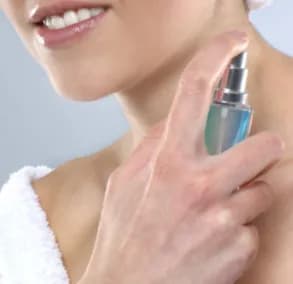Despite regular washing and contact with bacteria-laden objects, our personal milieu of skin microbes remains highly stable over time, reports a metagenomics study published May 5 in Cell. The authors say this knowledge could be applied to better understand a wide range of human skin disorders through the development of prebiotic, probiotic, and microbial transplantation approaches.
Human skin is an ecosystem composed of a wide range of habitats for bacteria, fungi, and viruses. While most of these microbes are harmless or beneficial, some have been linked to skin disorders such as acne, psoriasis, and eczema. Studying the variability of microbial communities across skin sites has been key to understanding, for instance, why eczema tends to affect moist sites such as the bends of the arms and legs, while psoriasis commonly occurs on dry, exposed sites such as the elbows and knees. However, it has not been clear how microbial communities found across skin sites change over time and how these changes may affect human health.
In a recent metagenomic study, senior study authors Heidi Kong of the National Cancer Institute and Julie Segre of the National Human Genome Research Institute found that bacterial, fungal, and viral communities not only show a strong preference for inhabiting specific skin sites, but also serve as microbial fingerprints that are highly unique to individuals. In the new study, they expanded upon this work by examining the longitudinal stability of these skin microbial communities. The researchers took skin samples from 12 healthy individuals at three successive time points, spanning from 1 month to 2 years, and performed metagenomic shotgun sequencing across 17 skin sites.
Surprisingly, skin microbial communities remained highly stable over time, despite typical exposure to external perturbations such as routine contact with other individuals, clothing, and environments. Rather than acquiring prevalent microbes from the environment, individuals retained their own unique microbial signatures. However, the stability of skin microbial communities varied across individuals and microbial strains, with some showing more changes than others.
In addition, some skin sites contained more variable microbial communities than others. For example, oily skin sites such as the back and external auditory canal contained the most stable bacterial and fungal communities, and even highly exposed, dry sites such as the palm showed remarkable stability over time. By contrast, sites with high microbial diversity, such as the feet and moist sites, were the least stable over time, perhaps due to factors such as personal hygiene or exposure to more variable environments.
One limitation of the study is that it focused on a small number of healthy adults. In future studies, Kong and Segre plan to use what they've learned about healthy skin microbes to study patients with eczema and primary immune deficiencies. "Future studies can use the knowledge of the relative stability of the skin microbial communities in healthy adults to understand how various exposures or disease state may alter these skin microbes," Segre says. "For example, studies in acne patients could explore whether specific strains bloom during adolescent acne flares or change with medications such as antibiotics."
The above post is reprinted from materials provided by Cell Press. Note: Materials may be edited for content and length.
Disclaimer: DoveMed is not responsible for the adapted accuracy of news releases posted to DoveMed by contributing universities and institutions.
Primary Resource:
Oh, J., Byrd, A. L., Park, M., Kong, H. H., Segre, J. A., & NISC Comparative Sequencing Program. (2016). Temporal Stability of the Human Skin Microbiome. Cell, 165(4), 854-866.
Related Articles
Test Your Knowledge
Asked by users
Related Centers
Related Specialties
Related Physicians
Related Procedures
Related Resources
Join DoveHubs
and connect with fellow professionals


0 Comments
Please log in to post a comment.